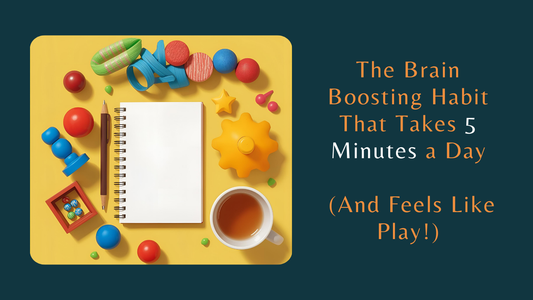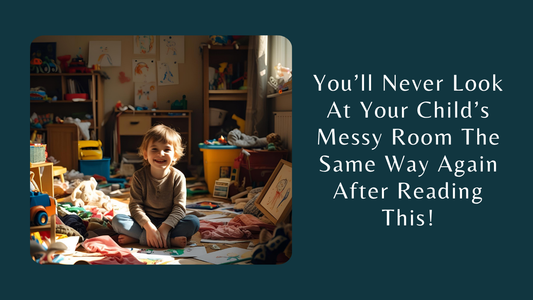What’s the Secret to Sharpening Young Minds in Just Minutes?

As parents, we often feel the pressure of giving our children every opportunity to learn and grow. Yet the truth is, it does not need to be complicated or time consuming. One of the most effective ways to nurture a child’s brain can take only five minutes each day, through the joy of play. A short burst of puzzle solving, a quick word game, or a round of matching cards can spark curiosity, stretch thinking, and give the brain a gentle workout.
For children, it never feels like a lesson. To them, it feels like fun.
Why Does Play Work Better Than Worksheets?

Many parents are surprised to learn that playful learning often brings greater benefits than worksheets or drills. When children are engaged in play, their brains enter a natural state of exploration and discovery. They are more motivated, more focused, and more willing to persevere with a challenge until they succeed. Worksheets can sometimes feel repetitive or pressured, but games and puzzles weave learning into moments of joy. The laughter, the shared conversations, and even the little mistakes all become part of the experience. Children remember not only the lesson but also the happiness that came with it.
The Science Behind 5 Minutes of Play

You may ask, can five minutes truly make a difference? The answer is yes. Research in neuroscience shows that even short bursts of focused play strengthen the brain’s pathways, especially when paired with positive emotions. Think of it as a daily exercise for the mind. Just a few minutes are enough to stimulate problem solving, boost memory, and sharpen concentration. What makes it even more powerful is that play releases dopamine, the brain’s natural chemical for happiness, which builds a lasting link between learning and joy.
How to Build This Habit into Everyday Life

The beauty of this brain boosting habit is that it fits easily into daily life. No special equipment or long sessions are required. Five minutes is all it takes. You could play a memory game while waiting for dinner, share a riddle during a car journey, or set a mini puzzle just before bedtime. Children thrive on routine, so weaving short bursts of play into familiar parts of the day helps make it a natural rhythm. It is not about adding one more task. It is about sprinkling a little joy into the moments you already share.
A Memory That Lasts Longer Than 5 Minutes

The true gift of these five minute play sessions goes far beyond brain development. They become treasured memories of togetherness. A child may not remember the exact riddle or puzzle years later, but they will remember the sound of laughter, the warmth of encouragement, and the pride they felt when you celebrated their effort. In a world filled with busy schedules and screens, these moments of connection shine brightly. They become anchors of love and safety, helping children feel confident, resilient, and ready to embrace new challenges.
The Smallest Habits Create the Greatest Impact

Five minutes may not seem like much, but when you invest those minutes daily, the rewards grow. Your child’s brain becomes sharper, their imagination richer, and your bond stronger. This is not about adding pressure to your day. It is about reclaiming small moments of joy and learning together. Begin today with something simple and playful. Over time, these little games may become some of the most cherished memories of your child’s childhood.




